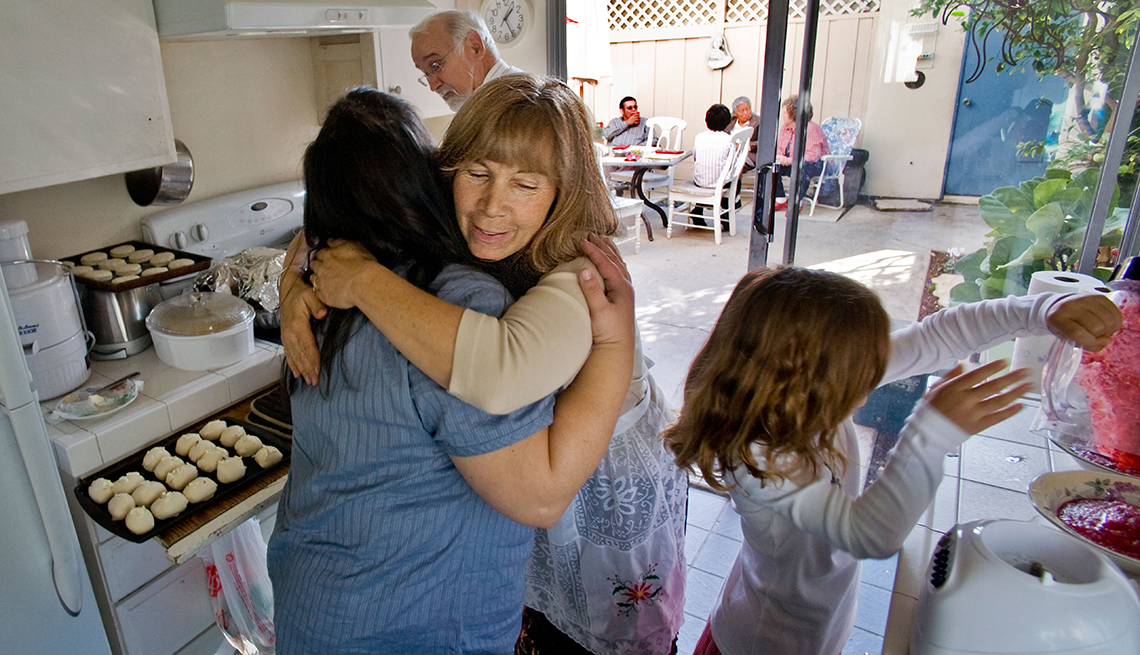What the holidays mean this year
- Select a language for the TTS:
- UK English Female
- UK English Male
- US English Female
- US English Male
- Australian Female
- Australian Male
- Language selected: (auto detect) - EN

Play all audios:

While Zoom is well-organized, with everyone “having their little place on the screen,” he says, “when you're in person, it's free-flowing and chaotic. And I just miss that
spontaneity. The quality of the experience — the depth, the richness — of being in the same space with somebody is just very, very different.” CONNECTING THROUGH THE SENSES The
full-sensory experience of an in-person holiday means a lot to the brain. “For example, our sense of smell is in our subconscious — in the background as we go through our daily life —
but our brain is registering the smell of things and creating emotional and meaningful reactions around that,” says psychiatrist Chris Aiken, M.D., a director of the Mood Treatment Center
in North Carolina and editor in chief of "The Carlat Psychiatry Report" newsletter. That's because our olfactory nerves — the nerves that pick up on scents — go
straight to the amygdala, the part of the brain associated with emotional functioning. Human touch is important to the brain as well, and more widely appreciated than the sense of smell,
Aiken says. “People recover faster from illnesses if they have more physical contact with others." Psychologists call the sense of being with another person "social
presence," and the brain recognizes different levels of this presence: A telephone call is better than no contact, Zoom is better than a telephone call, and being in the same space as
another human is better than Zoom. That said, the increased use of Zoom, FaceTime, text messages and other technology since the pandemic began has been awkward for many older adults. “It
has been almost like walking into a dark forest” for those “forced to connect in ways that are unfamiliar,” Thompson says. “It's so important for people to connect in ways that feel
comfortable.” Meanwhile, the older we get, the more memories we collect, and the holiday season — a time of gratitude — is a prime occasion for revisiting them. For older adults,
“having physical interaction with loved ones can really help them recall years past,” says Michael Pipich, a licensed marriage and family therapist in Greenwood Village, Colorado. “And if
it's not the best of times, especially if they've lost someone recently, that physical interaction can really help carry them through that grief.” As for Thaler-Carter, the only
two holidays her family observes are Passover — because her parents were Holocaust survivors — and Thanksgiving. “So not being able to do a family Thanksgiving has just been very hard,”
she notes, especially now that her parents are gone. She anticipates that “this is going to be one of our best Thanksgivings ever. I’m so excited. I wish it were tomorrow.”